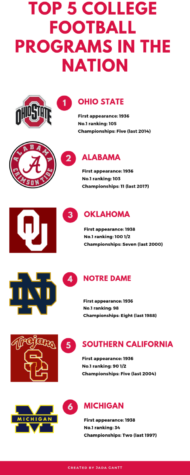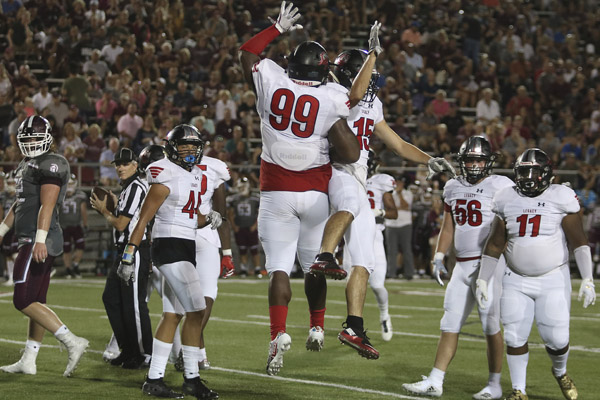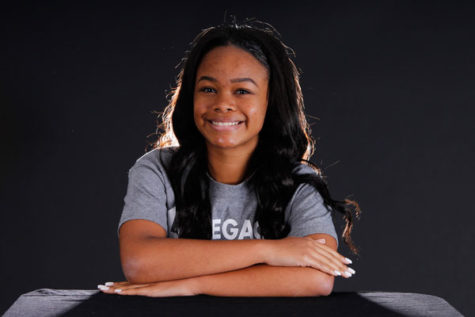Senior Enoch Jackson munches down a bag of Funyuns as he enters the field house. William Carr, Morgan State football coach, sits across the table across from him watching Jackson eat his chips. “Why are you eating chips,” Carr said. “Your body is a Camaro. You don’t feed it normal gas.”
Carr ends their 20 minute conversation by inviting Jackson to play football at Morgan State University.
Jackson received his first offer to attend Morgan State University on Dec.15, 2017. In August 2018, he committed to the University of Arkansas after receiving over 20 offers from colleges nationwide.
“It was difficult weeding out the schools that actually wanted me,” Jackson said. “I never knew if they just wanted me because they didn’t want me playing against them.”
Prior to an offer from the college football recruiter, the recruiter makes contact with the player. Contact requires no more than a formal hello to a potential college-bound athlete and their parents. An establishment of contact allows student athletes to understand which schools have an interest in them.
“Having so much interest from recruiters gave me a sense that I was really doing something,” Jackson said. “Even though I really haven’t, it really made me feel good about my skills.”
After contact from the recruiter, recruiters and college coaches perform evaluations on the athlete. They attend the player’s practices and games and talk to their coaches. Evaluations serve as indicators of the value of the player on their team. Head Football Coach Chris Melson takes the players’ academic performance into consideration when preparing athletes for this process.

“Grades are the number one thing a player must take care of,” Coach Melson said. “It’s the first question a college recruiter asks me.”
Next, the players can make a recruit visit. Official visits include an expense-paid tour of the college. Players also have a chance to view the football program from the inside as they meet with the coaches and their football teams.
Senior Jalen Catalon received 30 offers and can only choose one school to attend. Catalon goes on college tours to get insight on what the schools offer.
“I want to see how the school fits me as a person,” Catalon said. “I decide by determining if I can make an impact on the team.”
After they complete their research on the player, college football recruiters issue a National Letter of Intent to players who commit to their school. The letter acts as a contract between the school and the player. Participating colleges agree to pay tuition and allow the student to attend their school for one academic year. After the recruiter has received the signature, no other schools can issue offers to that student.
“After committing to a college, I felt like a lot was off of my chest,” Jackson said.” I could finally focus on high school again.”





